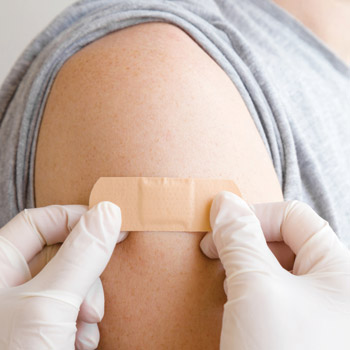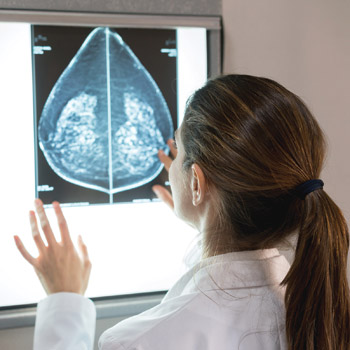Following up on breast density
This issue also covers vaccination practices and resources for managing the COVID-19 pandemic.
Most U.S. states now require that women who have dense breasts on mammography be notified of that fact. What women should do with that knowledge once they have it, however, is not always clear. Internists may find themselves fielding questions about more frequent screening, supplemental tests, and levels of increased breast cancer risk. Our story in this issue offers an overview of the categories of breast density, what each one might mean clinically, and how to communicate this information to patients in a way that increases understanding while decreasing fear.
Vaccines are an important part of preventive care, but it can be hard convincing patients to keep up with the existing vaccination schedule. Physicians focused on vaccines face other hurdles, too, such as tracking the often complicated changes to annual recommendations and managing reimbursement, purchasing, and storage. Our story in this issue offers a rundown of the latest updates from the Advisory Committee on Immunization Practices (ACIP), most notably regarding pneumococcal and human papillomavirus (HPV) vaccines, as well as recommendations on building a vaccination program and increasing patient buy-in. Another story reports on a briefing from the Infectious Diseases Society of America regarding the hunt for a COVID-19 vaccine.
Testing is another piece of the COVID-19 puzzle, and with the growing number of tests becoming available, the utility of each can be cause for a great deal of confusion. In a Q&A, we talk to infectious diseases subspecialist Elisa I. Choi, MD, FACP, to get some clarity on the types of COVID-19 tests available, the variation that can result from different testing approaches, how hospitals and other health care facilities are using tests to manage their work forces and their patients, and what the testing landscape may look like moving forward.
Internal Medicine Meeting 2020 was canceled this year due to the COVID-19 pandemic, but educational content is still available. ACP CME 30, an online package available for purchase featuring 30 lectures that would have been given at the meeting, includes audio narration by the lecturers with video of the accompanying slides and offers up to 30 CME credits and 30 MOC points. This issue includes a preview of three of those lectures, with stories about diagnosing adult attention deficit/hyperactivity disorder, assessing chronic pain, and managing wound care.
At this time of great upheaval in health care and society in general, the ACP Internist staff and all staff at ACP are keeping the heroic work of our internal medicine community top of mind. All of ACP's coronavirus content and resources can be accessed online, and ACP Members can talk with each other in our Member Forum. Please feel free to contact our staff at any time at immatters@acponline.org.
Sincerely,
Jennifer Kearney-Strouse
Executive Editor, ACP Internist




